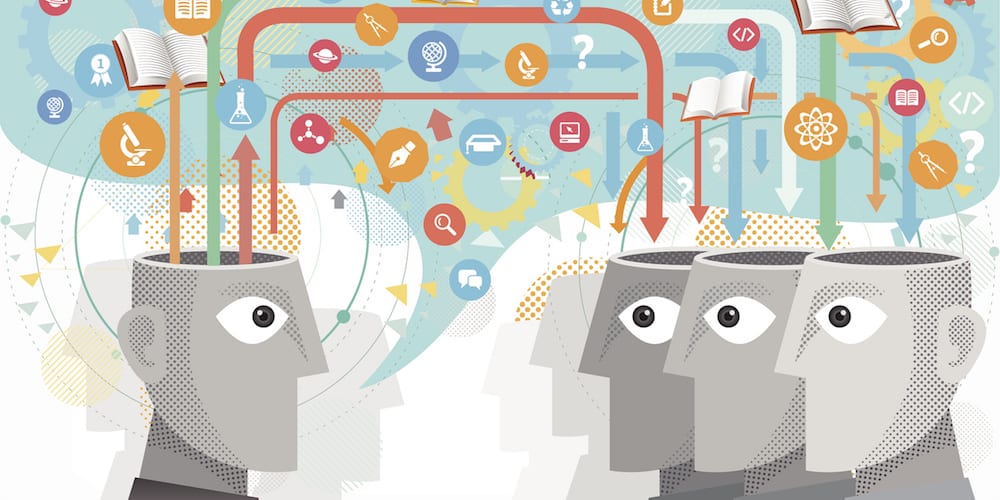Futurists and economists regularly bombard us with predictions of the future that oscillate between the positively exciting to the absolutely frightening. First we were told we should all learn to code, then it turns out we can easily outsource and offshore coding to much better resourced and increasingly cheaper markets and besides, in a very short period of time, AI will compose it’s own code faster than any human is capable of and essentially self-create itself. Fine!
Next we’re told that only humans can provide high-touch levels of service or maintain meaningful relationships with other human beings, although computers long ago passed the Turing test which proved that many of us can no longer perceive much difference between a person saying, “Computer says, ‘No,’” and an actual computer saying, “No.” So what precisely does the future of skills require and perhaps more importantly, are we looking at change in the correct way?
Change is about more than “What’s Changing”
When we think about change, we tend to be distracted by trends, market place shifts and technological advancement. No surprise really, it’s all desperately interesting and innately newsworthy. However, if we want to future proof our skills, our teams and our training, we need to take a more holistic view of change and consider what we like to call, The 3 Spheres of Change. These are:
- What is Changing
- What needs Changing
- What is Unchanging
We tend to treat these three distinct spheres of change with the kind of preferential treatment that might seem more appropriate to three very lovely girls being brought up by a lovely lady in 1970s TV sitcom. What’s changing is clearly The Marsha, it’s bold, it commands attention and it is clearly the favourite in terms of the attention that is lavished upon it. What needs changing benefits from our bias and inclination towards the new and shiny – so it’s The Cindy in our metaphor.
What is unchanging might be considered the least sexy of the spheres of change, or The Jan. However, this final sphere of change is perhaps the most important as, in a world that is constantly distracted and even paralysed by threats and opportunities, what is evergreen can become extremely important. It can be useful to think of this third sphere of change as overlapping roughly with Dr Steven Covey’s “Not urgent but Important” quadrant in his famous priority matrix. Investing in the third sphere of change, what we call Forever Skills, helps you to better prepare for what is changing and what needs changing. So what are these Forever Skills and why might they matter so much in the world of professional training and development?
In our research with hundreds of professionals, leaders, futurists, economists and academics from around the world, the skills that emerged as being eternally useful aligned themselves roughly into three suites of capabilities – Communication Skills, Creativity Skills and Control Skills. These were all deemed to be very much necessary no matter what AI, algorithms and robotics will throw at us. Of course, what people mean by each of these skills can vary widely across categories and cultures, so we’ve tried to describe them in as universal terms as possible. It’s also highly likely that you will see an overlap between the definition of skills and traits or characteristics, so please feel free to use them interchangeably. Our definition of a skill is that of a capability that provides either social or economic value and can also be learned, taught, developed and nurtured.
The 12 Skills:
Communication Skills
Communication skills were considered to be anything but soft skills and included:
- Influence and an ability to create engagement
- Team building and the creation of cultures that others want to be a part of
- Establishing trust in an atmosphere of increasing cynicism and misinformation
- Translation of information from one context or field to another
Creativity Skills
Creativity Skills clearly have a role to play in what needs changing, but they were also considered to be amongst the Forever Skills and comprised:
- Turning data and information into insights and meaning
- Conversion of raw input (both tangible and intangible) into more valuable formats
- Problem Solving and a capacity to generate solutions we’ve not seen before
- Agility and a willingness to engage with ongoing education and to adapt to change
Control Skills
Control Skills might also be thought of as a combination of personal and professional management. They incorporated:
- Self-Control, discipline and self-awareness
- Resource management, distribution, allocation and preservation
- Order, consensus building and values alignment
- Implementation and an ability to execute a strategy
Of course, identifying the skills that will always matter is only half the challenge. The application of these skills takes some work.
Read more: Ways to be better at ‘Being You’
Kieran Flanagan and Dan Gregory are experts in leadership communication and strategic insights. They work as speakers, trainers and are the co-authors of Forever Skills: The 12 skills to future proof yourself, your team and your kids (Wiley). Find out more at www.theimpossibleinstitute.com.







